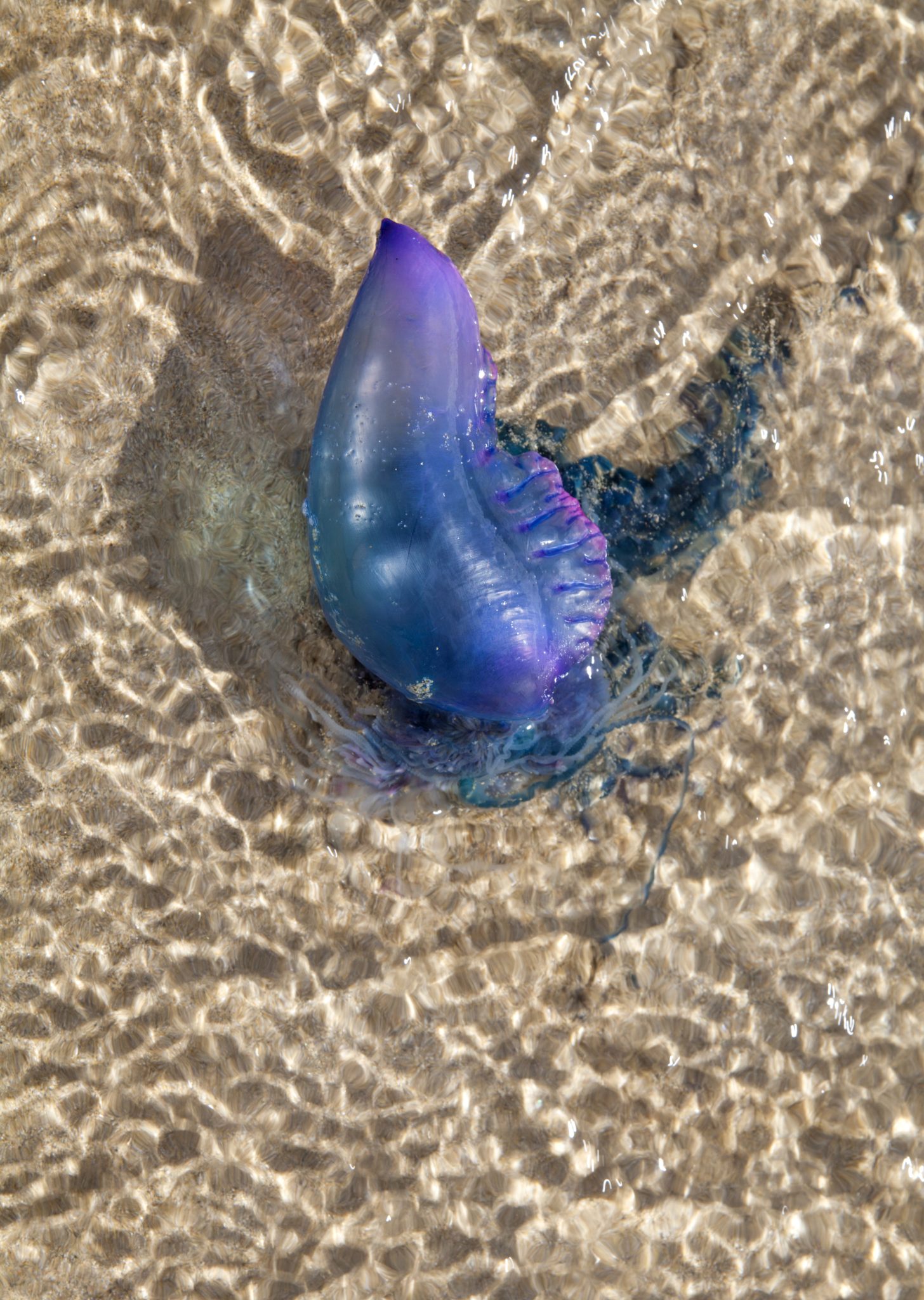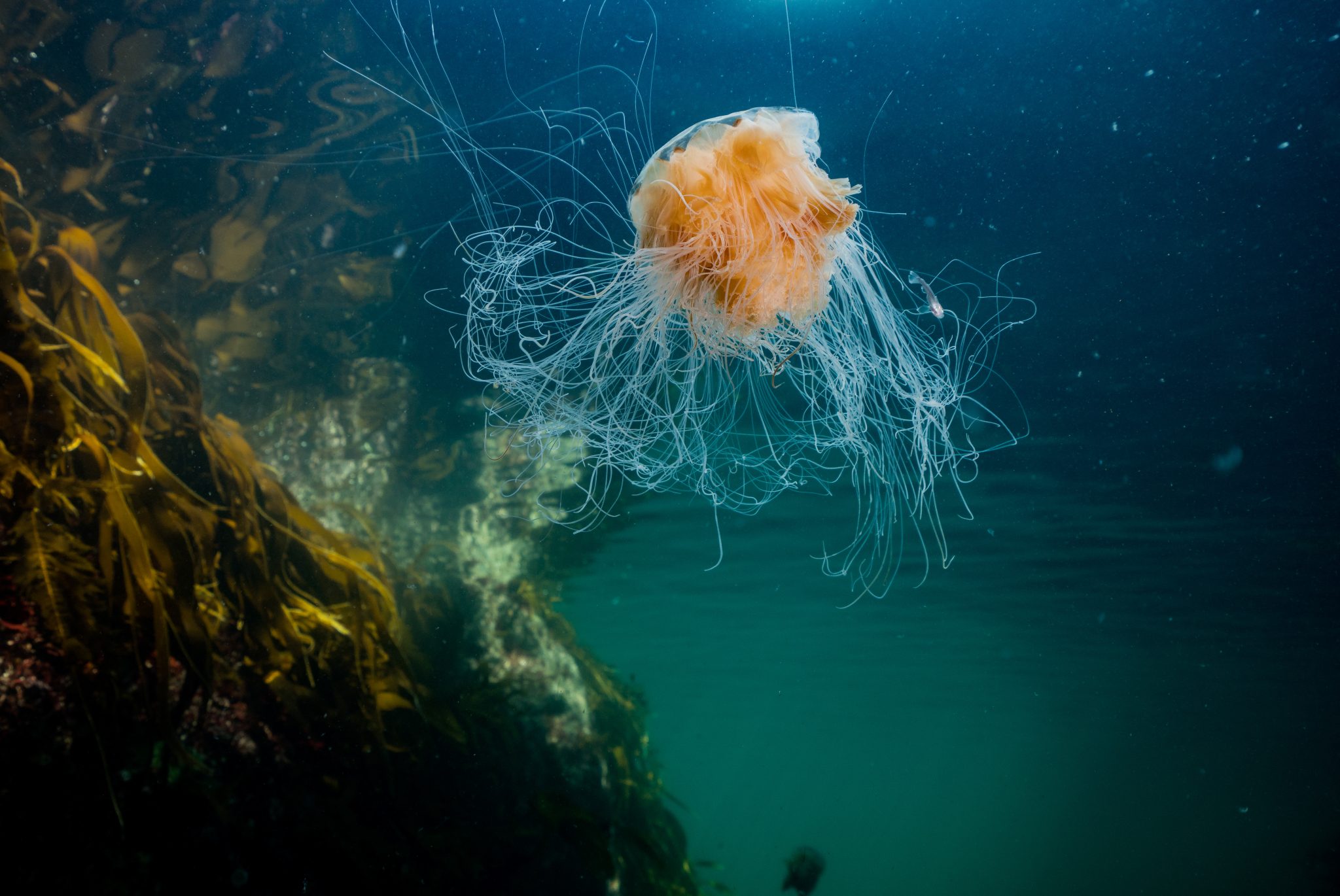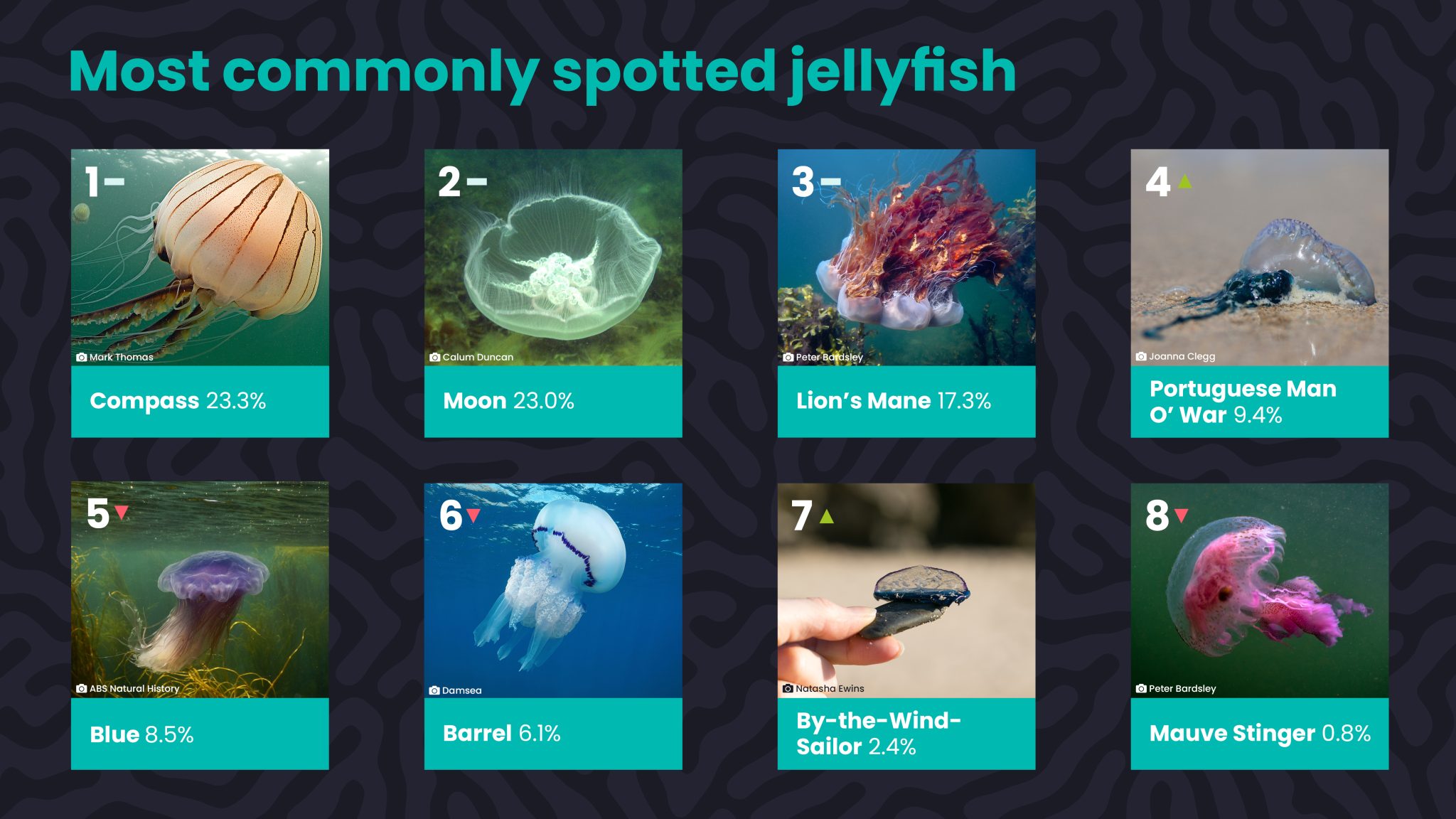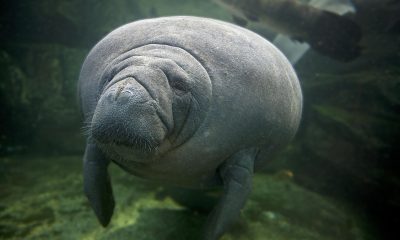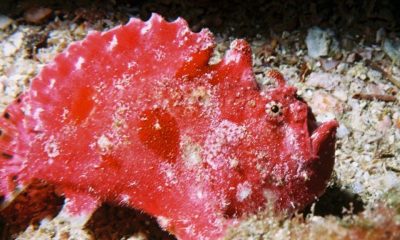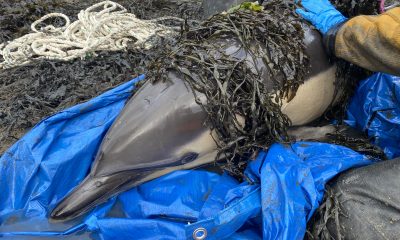Marine Life & Conservation
Top-spotted jellyfish in UK revealed in new MCS report
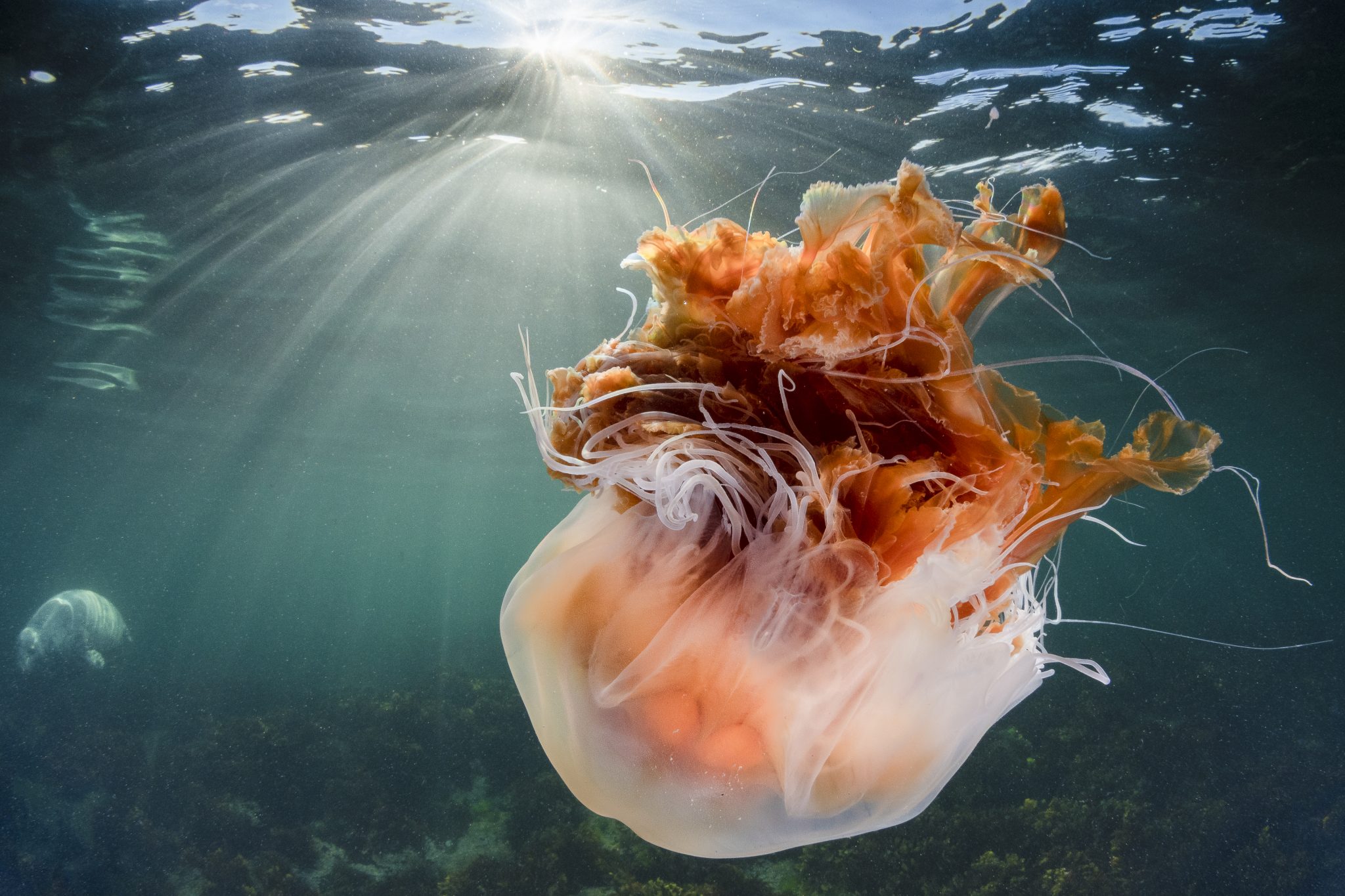
To mark World Jellyfish Day on the 3rd November last week, the Marine Conservation Society released its first Wildlife Sightings report, publishing last year’s findings from its long-running citizen science project.
The project asks the public to report jellyfish and marine turtle sightings in and around the UK and Ireland’s shores. The charity collects and analyses reports of these species to identify trends in their distribution around the UK. Changes in when and where marine wildlife are spotted can help understand how the ocean is changing in response to environmental factors, like climate change.
Between 1st October 2021 and 30th September 2022, there were a total of 1,315 jellyfish sightings reported to the Marine Conservation Society. The charity regularly records sightings of eight jellyfish species which are found around the UK and Ireland. More uncommon visitors were also spotted in our waters, with 11 species in total reported in the past year.
The compass jellyfish (pictured) was the most reported species, making up almost a quarter (23%) of total sightings. This was followed closely by moon jellyfish (also 23%), which were often seen in smacks (groups of jellyfish) of over 100.
Storms in October 2021 and February 2022 led to an increase in Portuguese Man O’ War sightings, which were up by 2% from the previous year. Although they have a bad reputation, these jellyfish-like creatures don’t normally occur in UK waters, preferring instead to drift in the open ocean.
Sightings of these unusual visitors were primarily along the Southwest coast and the west coast of Scotland, with westerly winds carrying them across the Atlantic to our shores. Sometimes stranding at the same time was the violet sea snail, which floats on the surface in bubble rafts, feeding on Portuguese Man O’ Wars.
The charity saw an increase in ‘other’ species reported, up from 5% to 9% this year. Among these were the bioluminescent crystal jellyfish, which made up 3% of total sightings and sea gooseberries at 1% – the highest percentages reported to date.
Tracking reports of ‘other’ species, like these, could show how changes in temperatures might be impacting jellyfish diversity in the UK.
Crystal jellyfish are usually found in the Pacific Ocean, rarely spotted in UK waters, suggesting that warmer temperatures may be impacting jellyfish diversity in the UK.
Jellyfish are especially appealing for marine turtles, which visit UK waters in the summer months to feed on them. 11 turtles were also reported, six of which were live leatherback turtles, spotted on the coast of Scotland. Leatherbacks are the largest turtle species with a diet mainly consisting of jellyfish.
Amy Pilsbury, Citizen Science Project Lead at the Marine Conservation Society, said:
“We use these sightings, alongside scientists, to spot trends in the distribution of jellyfish and marine turtles around the UK. Investigating the relationships between species can help us to discover more about our amazing underwater world and how it might be changing in response to things like climate change. A huge thank you to everyone who reported their sightings – with more reports we’re able to understand even more about our ocean.”
The charity’s Wildlife Sightings report includes a map of all reported jellyfish and turtle sightings, a breakdown of each jellyfish species reported, a map of Portuguese Man O’ War sightings, and the number of sightings reported each month.
The Wildlife Sightings turtle data will contribute to the Turtle Implementation Group’s annual ‘British & Irish Marine Turtle Strandings Report‘, of which the Marine Conservation Society is a lead partner, which will be released in March 2023.
The Marine Conservation Society continues to run its wildlife sightings project to see what happens to the distribution and frequency of mass jellyfish blooms over time and will be celebrating its 20th year of the national jellyfish survey in 2023.
The charity is encouraging the public to continue to report any species they see, with some visiting our shores in winter months. The data will help to explore any links jellyfish blooms have with big-picture factors such as climate change. Long-term datasets, like this one, can also help predict where jellyfish blooms may occur to ease the problems large blooms cause the marine industries.
For more information on the Wildlife Sightings project including the full report and to report a jellyfish or turtle sighting, please visit the Marine Conservation Society’s website: www.mcsuk.org.
Header image: Kirsty Andrews – MCS
Marine Life & Conservation
Leading UK-based shark conservation charity, the Shark Trust, is delighted to announce tour operator Diverse Travel as a Corporate Patron

 Corporate Patrons provide a valuable boost to the work of The Shark Trust. The Trust team works globally to safeguard the future of sharks, and their close cousins, the skates and rays, engaging with a global network of scientists, policymakers, conservation professionals, businesses and supporters to further shark conservation.
Corporate Patrons provide a valuable boost to the work of The Shark Trust. The Trust team works globally to safeguard the future of sharks, and their close cousins, the skates and rays, engaging with a global network of scientists, policymakers, conservation professionals, businesses and supporters to further shark conservation.
Specialist tour operator Diverse Travel has operated since 2014 and is committed to offering its guests high quality, sustainable scuba diving holidays worldwide. Working together with the Shark Trust will enable both organisations to widen engagement and encourage divers and snorkellers to actively get involved in shark conservation.
“Sharks are truly at the heart of every diver and at Diverse Travel, we absolutely share that passion. There is nothing like seeing a shark in the wild – it’s a moment that stays with you forever!” says Holly Bredin, Sales & Marketing Manager, Diverse Travel.
“We’re delighted to celebrate our 10th year of business by becoming a Corporate Patron of the Shark Trust. This is an exciting partnership for Diverse and our guests. We will be donating on behalf of every person who books a holiday with us to contribute towards their vital shark conservation initiatives around the world. We will also be working together with the Trust to inspire divers, snorkellers and other travellers to take an active role – at home and abroad – in citizen science projects and other activities.”
Paul Cox, CEO of The Shark Trust, said:
“It’s an exciting partnership and we’re thrilled to be working with Diverse Travel to enable more divers and travellers to get involved with sharks and shark conservation. Sharks face considerable conservation challenges but, through collaboration and collective action, we can secure a brighter future for sharks and their ocean home. This new partnership takes us one more valuable step towards that goal.”
For more information about the Shark Trust visit their website here.
For more about Diverse Travel click here.
Marine Life & Conservation
Shark Trust Asks Divers to help with Shark Sightings this Global Citizen Science Month

 Whether you are stuck for ideas of what to do with the kids or are off on the dive trip of your dreams. You can get involved in Citizen Science Month and help the Shark Trust by providing vital data about sharks are rays both close to home and further afield.
Whether you are stuck for ideas of what to do with the kids or are off on the dive trip of your dreams. You can get involved in Citizen Science Month and help the Shark Trust by providing vital data about sharks are rays both close to home and further afield.
In addition to reporting the sharks and rays you see on your dives, the eggcases you find on the beach, the Shark Trust is looking for some specific data from divers who are asked to report any Oceanic Whitetip and Basking Sharks.
Oceanic Whitetip Sharks
The Shark Trust are looking specifically for Oceanic Whitetip Shark sightings over the coming weeks and months. So, if you are diving anywhere in the world, please report your sightings via the website or app.
Website: https://recording.sharktrust.org/
App: Search The Shark Trust in your app store
The Oceanic Whitetip. Known for their incredibly long dorsal and pectoral fins, this species was once the most abundant oceanic-pelagic species of shark on the planet.
Large and stocky, they are grey or brown above, and white below and famous for their huge rounded first dorsal fin and paddle-like pectoral fins. The fins also highly prized within the shark fin trade. Whilst they are mostly solitary, Oceanic Whitetips do occasionally hunt in groups.
An inquisitive species, they were easy prey for fisheries. Combined with their low reproductive rate, they were inevitably at high risk of population depletion. And declines of up to 99% have been reported in certain sea areas. They are listed as Critically Endangered on the IUCN Redlist (2019).
Conservation efforts to discourage further declines include listing on CITES Appendix II and CMS Appendix I. They’re also the only species prohibited from take by all the Tuna RFMOs (Regional Fisheries Management Organisations). However, these measures do not mean that Oceanic Whitetips are not still caught – whether targeted or as bycatch – in some parts of the world. With populations declining at such a high rate, effective implementation of management measures is essential to ensure that the species can recover.
If you are lucky enough to get an image of an Oceanic Whitetip and you record your sighting on the Shark Trust app or website YOU CAN WIN! All images submitted with sightings, that also give consent to use in conservation messaging, will be in with a chance to win an Oceanic Whitetip T-shirt and mug. The competition will run until the end of “Shark Month” in July – so keep those sightings (and images) coming in.
Basking Sharks
Basking Shark (Cetorhinus maximus) season is upon us, and the Shark Trust is asking everyone to keep an eye out for these majestic giants over the summer months. If you see any, you can record your sighting to the Basking Shark Sightings database.
Each year, these mighty fish return to British waters to feed on plankton. You may see one, (or a few if you’re really lucky) from around April-October. They can be seen feeding at the surface of the water, where they look like they’re basking in the sun. Thus, their name!
Sighting hotspots around the British Isles include southwest England, Isle of Man, north coast of Ireland, and western Scotland. The Sea of the Hebrides is the most prolific sightings area in Scotland, but they have been spotted all around the coast and have even ventured into some of the sea lochs. The Shark Trust has received thousands of sightings since the Basking Shark project began, but more data is needed to truly understand what is going on with population numbers and distribution. You can help by recording your sightings this summer.
Great Eggcase Hunt
The Shark Trust has an Easter Egg Hunt with a difference for you to try. Take part in the Great Eggcase Hunt and get involved with a big citizen science project that helps shark, ray and skate conservation. And it’s an enjoyable activity for all the family.
The Shark Trust also want snorkellers and divers to record their underwater eggcase findings. Underwater records help pinpoint exactly where sharks and skates are laying their eggs and can help link to beach records. Learning the depth and substrate that they lay on also helps better understand the species.
Find out more: https://www.sharktrust.org/great-eggcase-hunt
Whether you are diving, snorkelling or exploring on the beach you can take part in Citizen Science Month and get actively involved in shark and ray conservation. Find out more: www.sharktrust.org
-

 News3 months ago
News3 months agoHone your underwater photography skills with Alphamarine Photography at Red Sea Diving Safari in March
-

 News2 months ago
News2 months agoCapturing Critters in Lembeh Underwater Photography Workshop 2024: Event Roundup
-

 Marine Life & Conservation Blogs2 months ago
Marine Life & Conservation Blogs2 months agoCreature Feature: Swell Sharks
-

 Blogs1 month ago
Blogs1 month agoMurex Resorts: Passport to Paradise!
-

 Gear News3 months ago
Gear News3 months agoBare X-Mission Drysuit: Ideal for Both Technical and Recreational Divers
-

 Blogs2 months ago
Blogs2 months agoDiver Discovering Whale Skeletons Beneath Ice Judged World’s Best Underwater Photograph
-

 Gear Reviews2 months ago
Gear Reviews2 months agoGear Review: Oceanic+ Dive Housing for iPhone
-
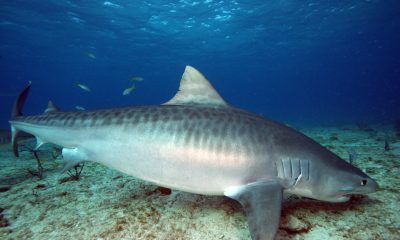
 Blogs3 months ago
Blogs3 months agoThe Thrilling Encounter with Tiger Sharks at Beqa Lagoon’s ‘The Colosseum’ with Coral Coast Divers



